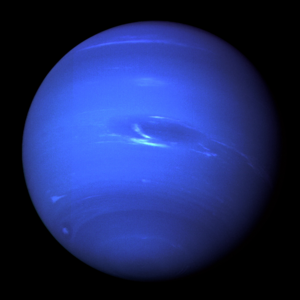Difference between revisions of "Neptune"
| Line 25: | Line 25: | ||
==Beyond the Curriculum== | ==Beyond the Curriculum== | ||
{{#ev:youtube|https://www.youtube.com/watch?v=NStn7zZKXfE}} | {{#ev:youtube|https://www.youtube.com/watch?v=NStn7zZKXfE}} | ||
| + | |||
| + | ===References=== | ||
| + | ====AQA==== | ||
| + | |||
| + | :[https://www.amazon.co.uk/gp/product/1471851370/ref=as_li_tl?ie=UTF8&camp=1634&creative=6738&creativeASIN=1471851370&linkCode=as2&tag=nrjc-21&linkId=01c69b0ae058f809cf636033e6ba793e ''Neptune, page 249, GCSE Physics, Hodder, AQA ''] | ||
| + | :[https://www.amazon.co.uk/gp/product/0008158770/ref=as_li_tl?ie=UTF8&camp=1634&creative=6738&creativeASIN=0008158770&linkCode=as2&tag=nrjc-21&linkId=ec31595e720e1529e49876c3866fff6e ''Neptune, pages 276-7, GCSE Physics; Student Book, Collins, AQA ''] | ||
Revision as of 17:07, 9 November 2019
Contents
Key Stage 2
Meaning

A picture of Neptune.
Neptune is a gas giant planet which is the eighth planet from The Sun.
About Neptune
Key Stage 3
Meaning
Neptune is a gas giant planet which is the seventh planet from The Sun.
About Neptune
- Neptune is larger than Earth and about the same size as Uranus.
- Neptune has a very thick atmosphere.
Key Stage 4
Meaning
Neptune is a gas giant planet which is the seventh planet from The Sun.
About Neptune
- Neptune is larger than Earth and about the same size as Uranus.
- Neptune has a very thick atmosphere.